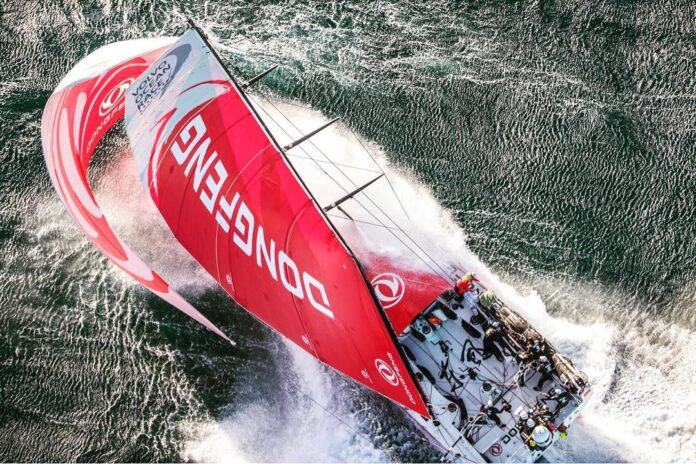The Ocean Race held a round table last Thursday to demonstrate how sport can become a catalyst for raising awareness. At the heart of the discussions: the ecological emergency, the strength of the collective, and sport’s ability to unite around a common goal: the preservation of the oceans.
This Thursday, at the Beau Rivage Hotel in Nice, all eyes are turned towards the sea. On stage, speakers from around the world discuss one of the greatest contemporary challenges: the protection of the oceans. Organized by The Ocean Race, this conference highlights the unique role that sport can play in awakening awareness. “Sport has the power to change the world,” said Nelson Mandela. Here, this quote resonates like a promise. Because in this room, we are not talking about medals or sports records. We are talking about the ocean, its rights, and the future of the planet.
The Ocean Race: A Commitment
Since 1973, The Ocean Race has not just been about sailing yachts across the oceans. In 2022-2023, the event launched a “Sustainability Charter”, while calling for a Universal Declaration of Ocean Rights. “It is no longer just about winning a race,” insists Jérémy Pochman, founder of 11th Hour Racing. “What matters is the common goal. We protect what we love. If we love the ocean, then we must protect it.” To illustrate the urgency, he cites the presence of microplastics detected up to Point Nemo, the most isolated place on the planet. A brutal, yet necessary awareness.
The Attractiveness of Sport to Mobilize
It is no coincidence that this conference relies on sport as a vector for action. Toste Tanhua, a scientist at the GEOMAR Institute, explains unequivocally: “Sport generates millions of followers. It can thus serve as a megaphone for raising awareness about the climate issue.” This leverage of influence is well understood by Pia Thorsby. Mother of footballer Morten Thorsby, she is a member of the “We Play Green” initiative. “Football is the most popular sport in the world. My son chose not to retire to continue using his fame to serve the planet.” A strong commitment, driven by the conviction that everyone can do their part.
Education and Local Action as Engines of Change
Act, yes. But how? Lucy Hunt, director of ocean impact for The Ocean Race, focuses on education. Since 2017, she has been leading awareness programs for young people and local communities. She also emphasizes the role of host cities of the race – of which Nice will be part at the end of August – as anchor points for local initiatives.
The Ocean: A Vital Resource
From a small island in Brazil, Marquito, whose real name is Marcos José de Abreu, has made the ocean a political cause. This deputy from Santa Catarina participated in the creation of a law recognizing ocean culture in his region. “For us, the ocean is part of our identity. This law has sparked real excitement and many initiatives,” he testifies.
But before claiming to save the oceans, sport must also question its own impact. Charles Steinmyller, from the Dona Bertarelli Foundation, reminds us with clarity: “Sport must learn to know itself. Understand its footprint on the environment, but also its role in change. Because if sport can unite, it can no longer ignore its own ecological weight.”
The Ocean Race Europe will stop in Nice at the end of August. Onboard each boat: scientific instruments to measure the quality of the water and seabeds.


